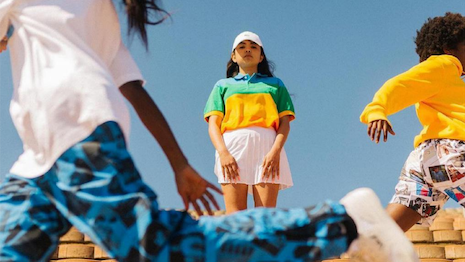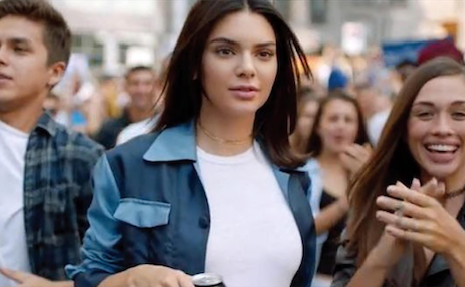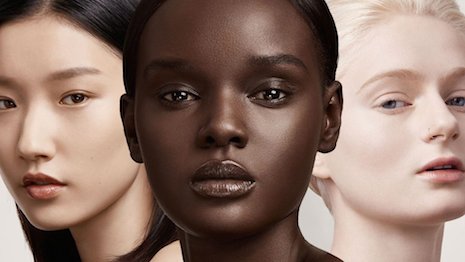 Young consumers can easily discern whether brands are authentic or performative, and they will act on it. Image credit: Adolescent Content
Young consumers can easily discern whether brands are authentic or performative, and they will act on it. Image credit: Adolescent Content With Gen Z’s buying power expected to reach $33 trillion by 2033, this cohort has a rapidly growing influence on how brands go to market.
According to the 2022 insights report from marketing agency Adolescent Content, 78 percent of Gen Z is skeptical of brands’ commitments to equity, diversity and sustainability — indicating that they do not trust them. To foster a mutually beneficial relationship with Gen Z consumers, brands must recognize their weaknesses, realign their values with today’s consumers and reimagine what it means to be a brand that can withstand shifting cultural tides.
“Depending on their life stage, the Gen Z consumer could be a middle school student obsessed with Fortnite or climbing the ranks of a Fortune 500 company as a new entrant into the professional world,” said Sydney Sweeney and Jeremiah Jones, coauthors of the report and junior creative strategists at Adolescent Content.
“Either way, they are among the generation who are highly sought after by brands and misunderstood by previous generations,” they said. “They are looking to change the world and create a more equitable society for themselves and others.”
The report analyzes data pulled from a three-day online chat community that was designed in a loose online focus group format in which 94 Gen Z individuals were asked to speak candidly in structured conversations.
This was supplemented by data pulled from an online survey of 300 Gen Z individuals consisting of 130 questions regarding topics ranging from influencer inspirations to their favorite social media posts.
Do not disturb
To gain purchase intent and loyalty from these young individuals, brands must be willing to admit their wrongs, or else they risk the worst-case scenario: getting canceled.
Supermodel, socialite and media personality Kendall Jenner has been criticized a number of times for appearing in insensitive advertising.
The first offense was a Pepsi commercial in 2017, which featured police-related social protests, and the second was last year in a campaign for her own tequila brand, 818, in which she donned traditional Mexican clothing and an Indigenous hairstyle.
 Kendall Jenner apologized for the Pepsi commercial, but a bad taste remains in consumers’ mouths. Image credit: Pepsi
Kendall Jenner apologized for the Pepsi commercial, but a bad taste remains in consumers’ mouths. Image credit: Pepsi
Ms. Jenner defended her tequila brand after being accused of appropriation, but apologized for the Pepsi ad after it received intense backlash. However, Adolescent Content suggests Gen Z is not yearning to forgive and forget.
In October 2021, Tapestry’s Coach brand publicly addressed criticism over its handling of unwanted goods and promised to cease the destruction of damaged or unsellable products.
Following an uproar on short-form video platform TikTok, the handbag and accessories brand committed to reusing these products in its Re(Loved) program and other circularity initiatives. According to Anne Sacks, the individual who posted the viral TikTok exposing the brand, Coach’s previous policy was to slash and throw away its unwanted merchandise (see story).
Accountability is not always enforced, though. There are exceptions to this rule.
For instance, a brand like Nike, which has cultivated a devoted consumer base and secured cultural dominance, can present itself as “good-natured” even with a few skeletons in the closet — and consumers will still trust them.
Gen Z will typically tolerate most brand imperfections if there is transparency. Successful brands will meet consumers where it matters and align their values to build a foundation of trust.
This cohort is driven by inclusivity, ethical business practices, sustainable business practices, innovation and overall shared principles. Surprisingly, however, Adolescent Content found that Gen Z is not looking to brands to solve major societal issues.
What matters is honesty and authenticity, and the report suggests that brands often drop the ball in performative attempts at social consciousness.
“Brand transparency is everything,” the authors said. “We feel like Gen Z hates being duped about brand business practices — they really look into the brands they support and demand brands show ‘receipts’ of the work or business practices they claim they have.”
Authentic reinvention
Unlike previous generations that are heavily motivated by capitalism, Gen Z is more focused on pursuing purpose and leaving behind a better world.
 Acknowledging wrongs and realigning values is not enough — brands must put these beliefs into practice. Image credit: Fenty Beauty
Acknowledging wrongs and realigning values is not enough — brands must put these beliefs into practice. Image credit: Fenty Beauty
For Gen Z, exclusivity is out, and inclusivity is in — a sentiment some luxury brands are leaning into, despite the nature of the industry.
LVMH’s Fenty Beauty, which singer Rihanna started as a way to shed light on the industry’s lack of merchandise diversity for complexion products, disrupted the luxury beauty space (see story).
Last year, Italian fashion group Prada became the first luxury fashion company to join The Valuable 500, a global community dedicated to transforming the business system for the benefit of people with disabilities.
The company recognized the intrinsic value of people who are disabled and committed to supporting all within its inclusion and sustainability agenda (see story).
When it comes to how brands are approaching younger consumers, social media influencers have been the reigning champions in facilitating those relationships, but that may be changing.
Only 29 percent of Gen Z members are concerned about how often influencers post, while even less, 26 percent, care about influencers posting curated content.
Gen Z individuals understand that they cannot avoid sponsored social ads, but they are not interested in online influencers exclusively posting sales content — a red flag for authenticity. Most of today’s youth seek out influencers with certain specific personality traits: authenticity, uniqueness and humor.
“Luxury brands are fighting an uphill battle when it comes to Gen Z,” Ms. Sweeney and Mr. Jones said. “Luxury, as a business concept, is rooted in the idea of exclusivity and a VIP mindset, but Gen Z does not really believe in those things.
“While Gen X and older millennials covet material possessions that are not accessible to everyone — say, a designer bag, high-end shoes or fancy cars — Gen Z identifies most with brands that make luxury accessible to everyone, regardless of socioeconomic status.”